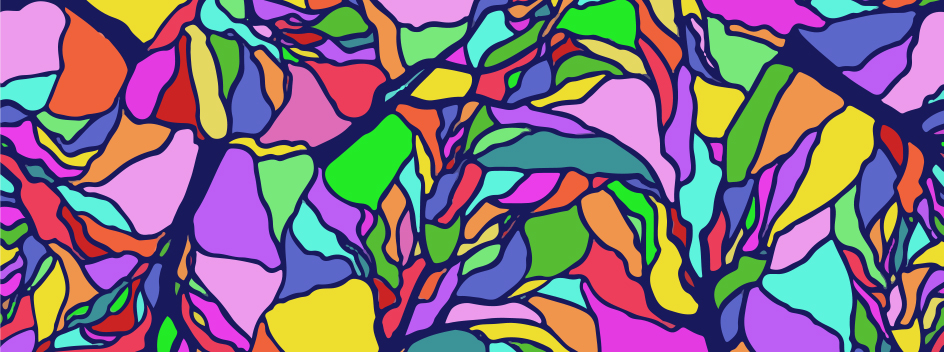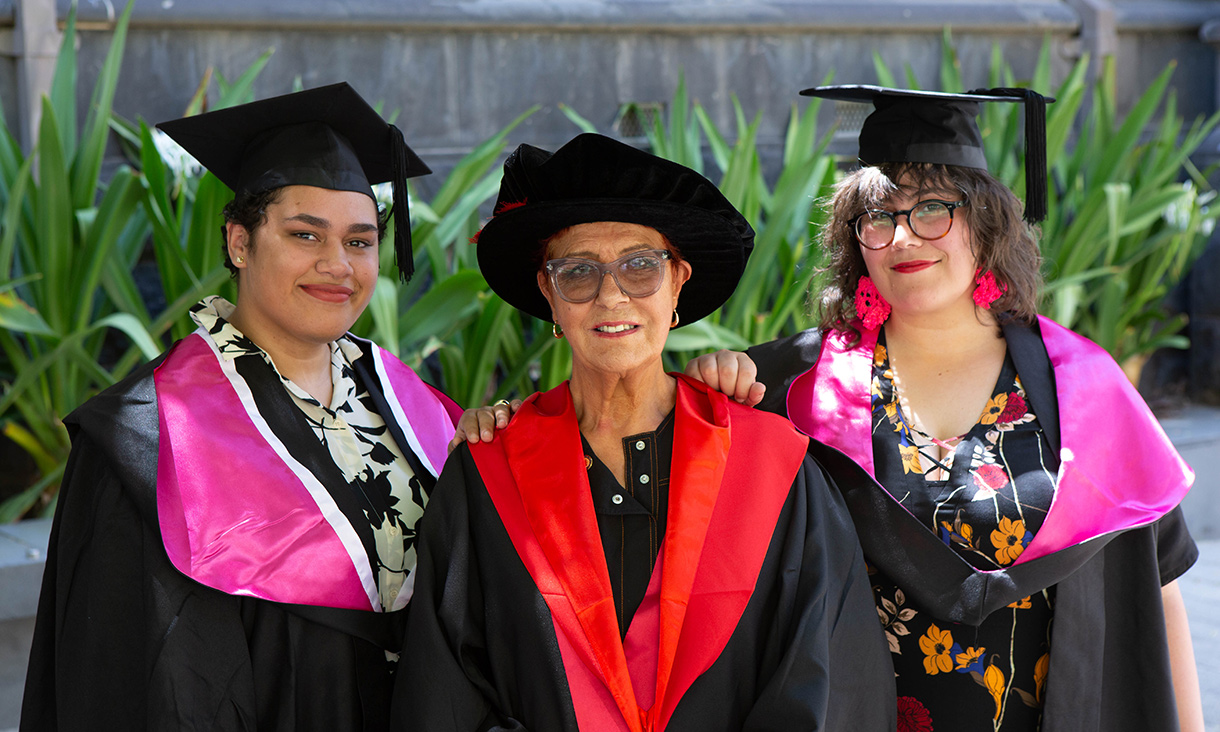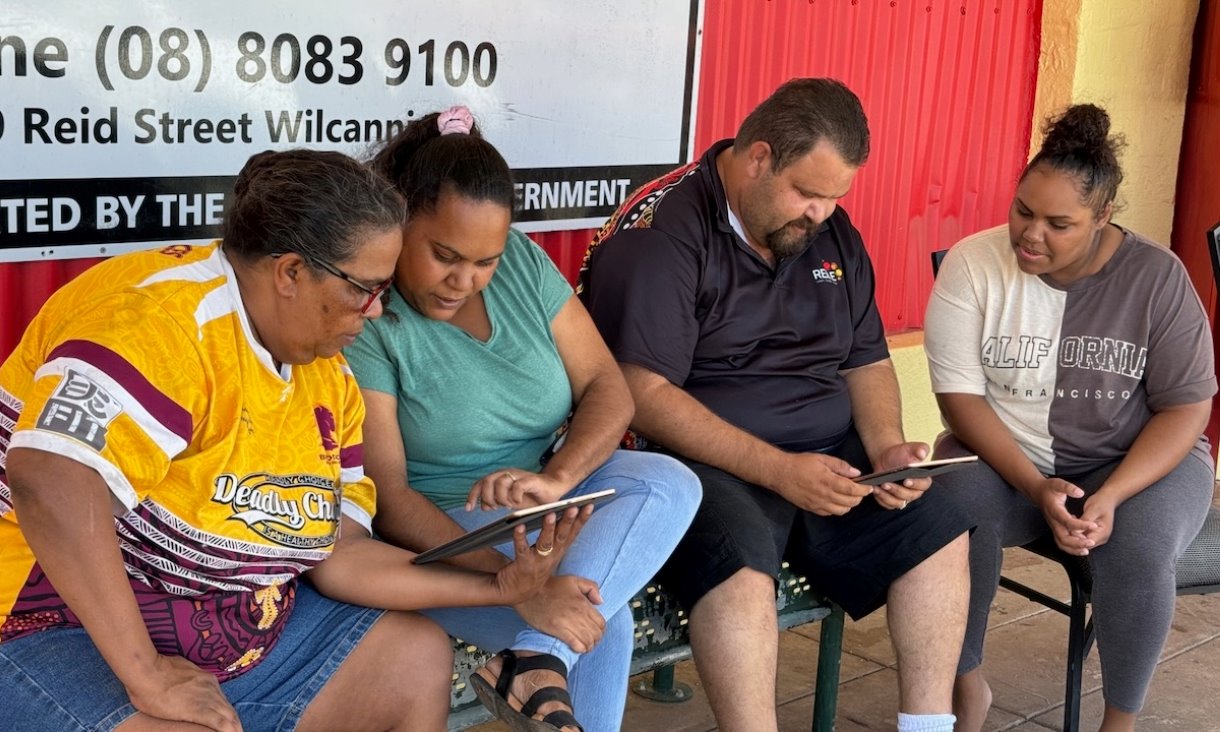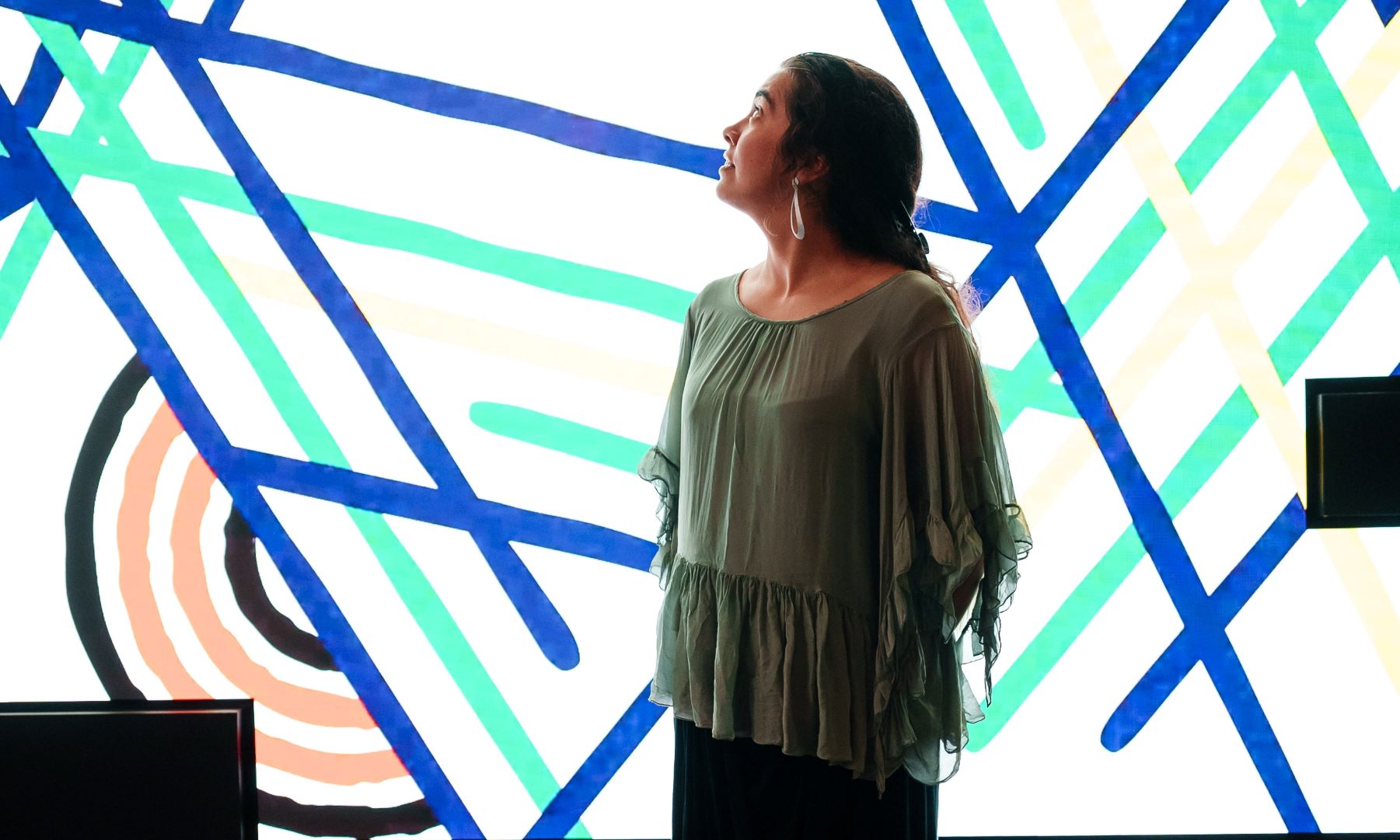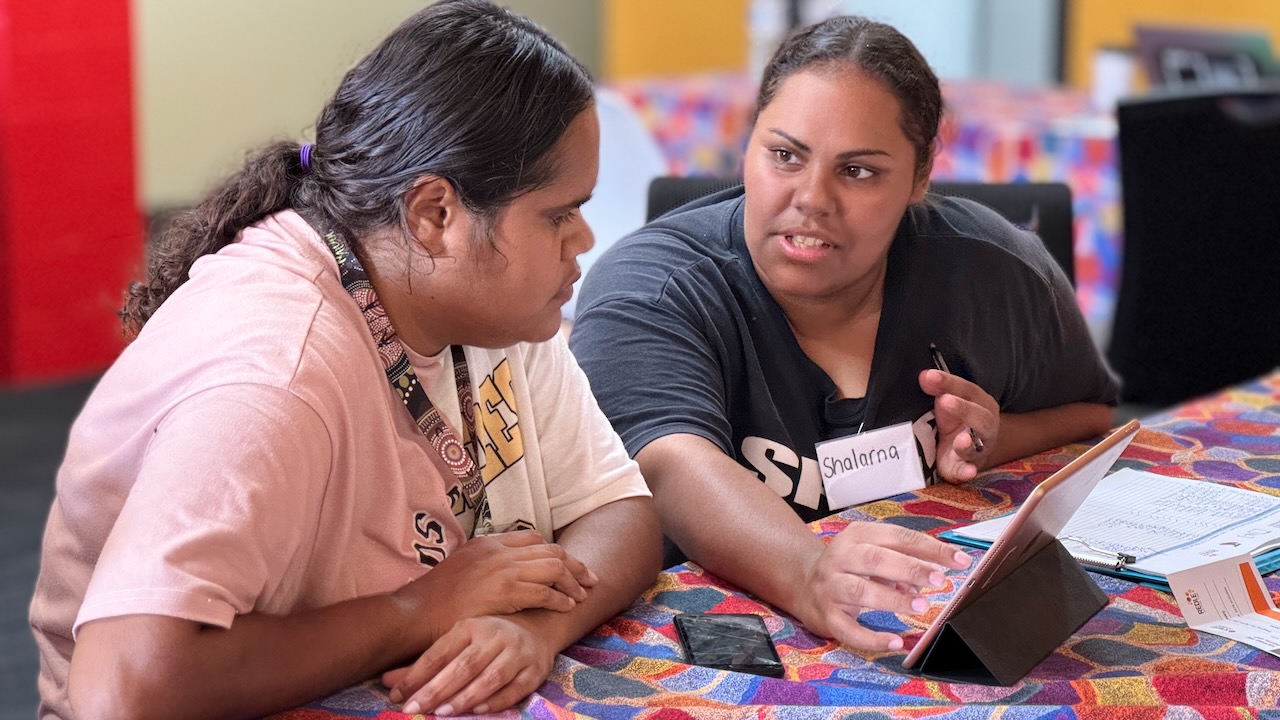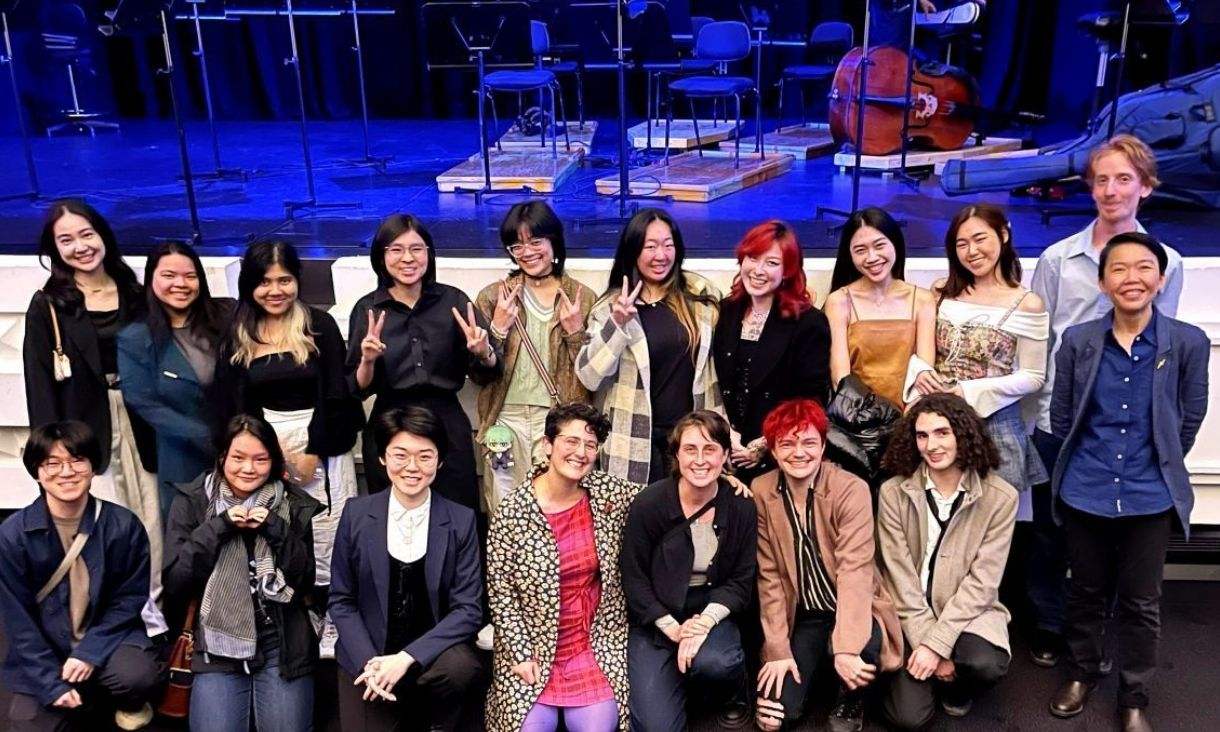The proud Boon Wurrung women are the latest members of their family to attend RMIT.
Briggs said her brother Fred attended RMIT in the 1950s when it was a technical college and went on to work at the University-owned Capitol Theatre, while her son Gheran graduated last year.
“It’s a family affair. It’s amazing,” Briggs, 71, said.
“It gave me courage to see these young ones take their path and go through university.
"They’re amazing individuals and we’ve had amazing support from our Ngarara Willim Centre, particularly during coronavirus.”
The Centre is a dedicated gathering place for Aboriginal and Torres Strait Islander students and staff and also a place for the University community to gain a better appreciation for Indigenous culture, business and knowledge.
Briggs said her PhD was about elder identity and knowledge and her experiences highlighted how Western academic systems and structures based in facts and evidence could work alongside oral-based Indigenous ones.
“Education is a tool that opens up a bigger world. Now I can go global,” she said.
“I think we opened our world up listening to first nation peoples and the global society that this system operates in.
"We can all learn from all these amazing cultures that this university has invested in.”
Steel, who also has Wemba Wemba heritage, said she was a lifelong learner, be it self-directed or formal higher education.
“One of the biggest things that my parents pushed was education,” Steel said.
“To see my mum, who has done so much not only for our community, but the wider community here in Melbourne and Victoria, get her PhD, it just makes me go, ‘We’ve come so far and we’re doing so well’.
“Then to see my niece graduate and develop herself as an artist and me getting my masters, it feels meaningful to come together.
“A big reason I’m a multidisciplinary artist is because I’m addicted to learning new skills.
“This year I learnt how to do digital 3D modelling and augmented reality.”
Amina-Jarra Briggs, who also has Torres Strait Islander heritage, said her grandmother and aunt were influential in her practise as a sculptor using candy in creations that explore the body and emotions.
She hopes to continue her RMIT journey next year and study honours.
“My aunty here constantly wants me to play around with ideas," she said.
"It really helps me expand my way of thinking and my grandmother has helped me meet other artists and understand their process.”
Congratulations to RMIT’s Class of 2020. This year’s graduating class are like no other: strong, resilient, and inspired. RMIT is excited to welcome the graduates into our global alumni network, spanning more than 140 countries and 400,000 alumni.
Story: Amelia Harris
